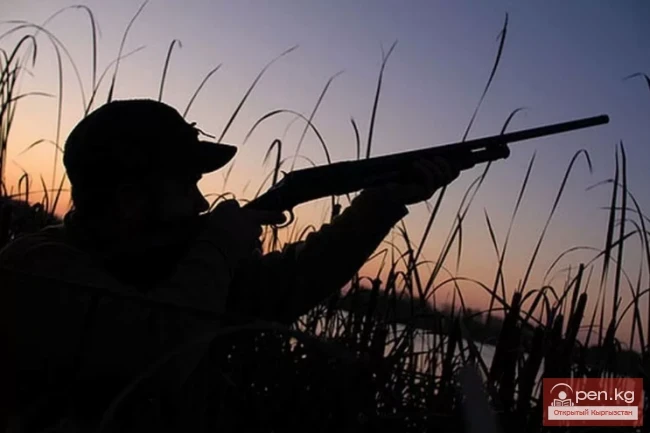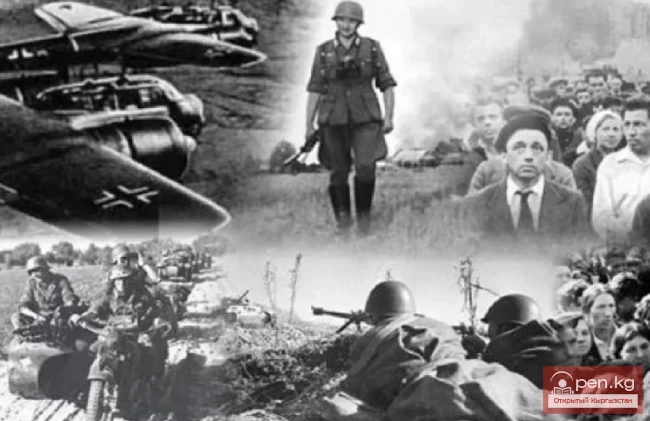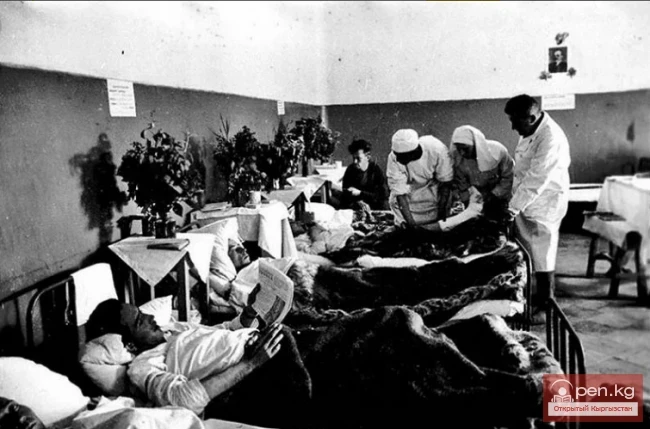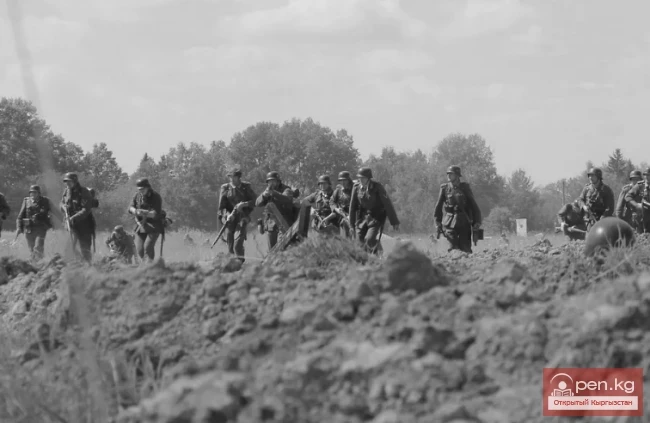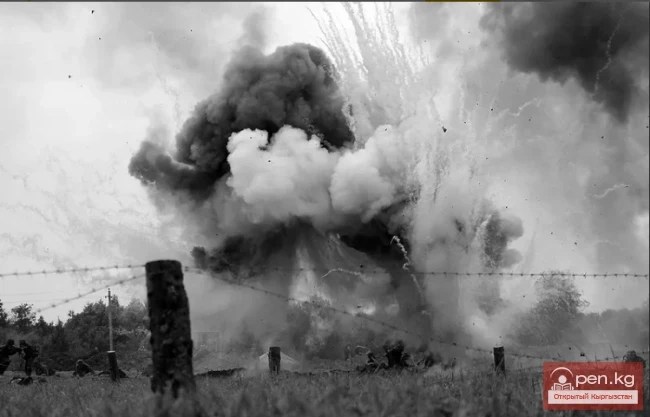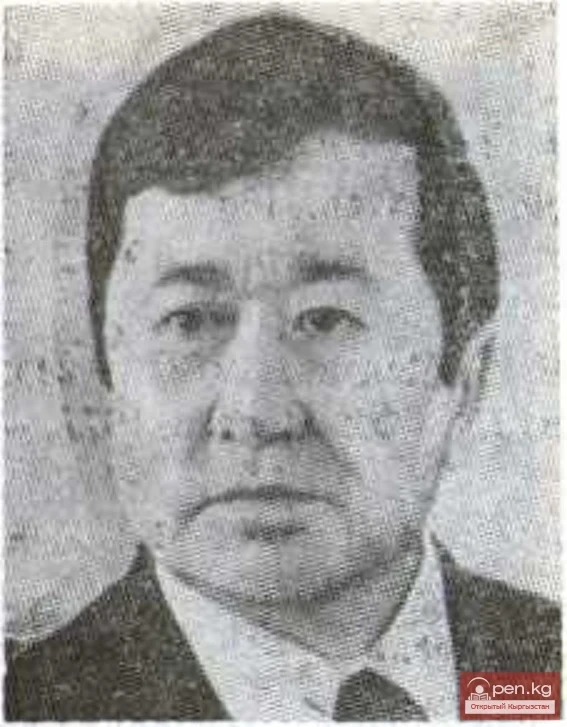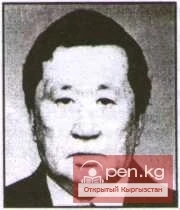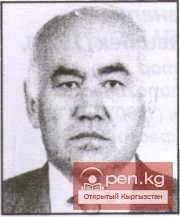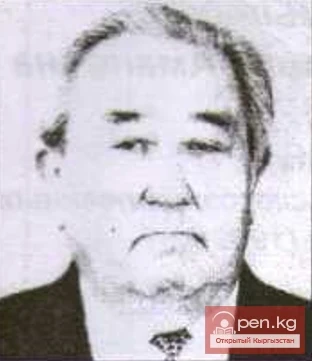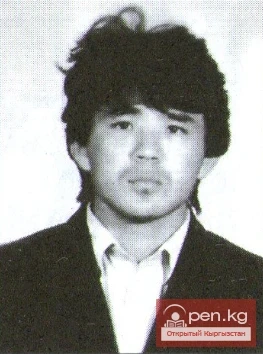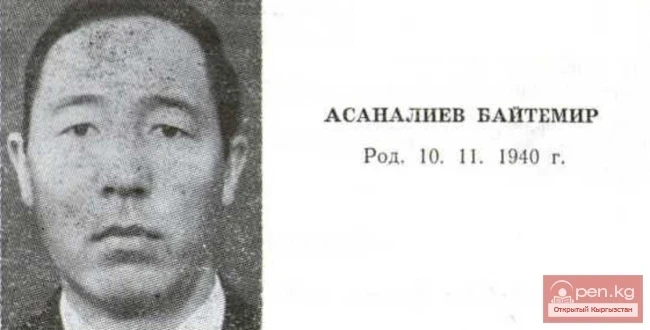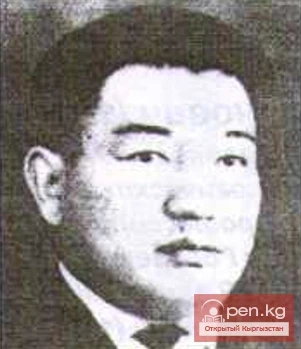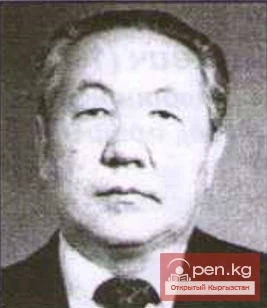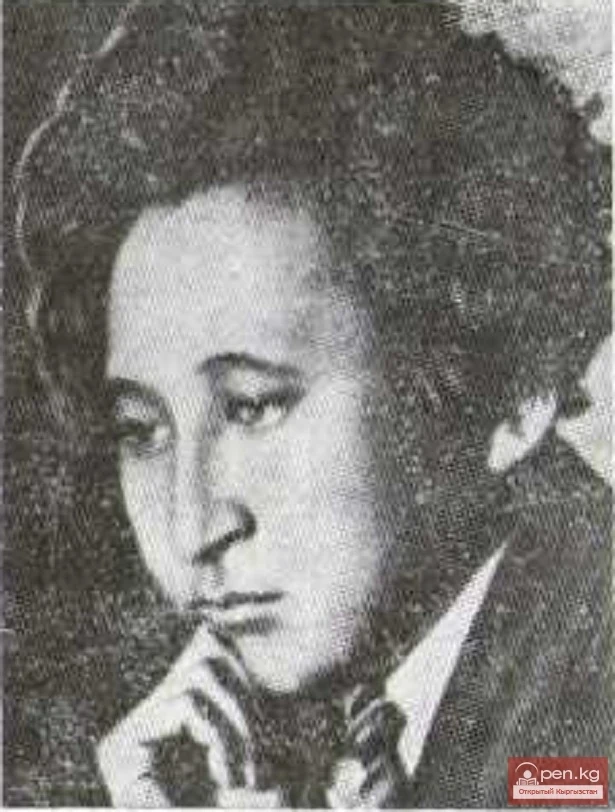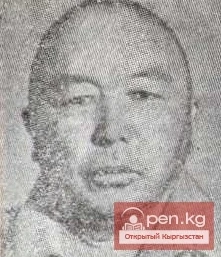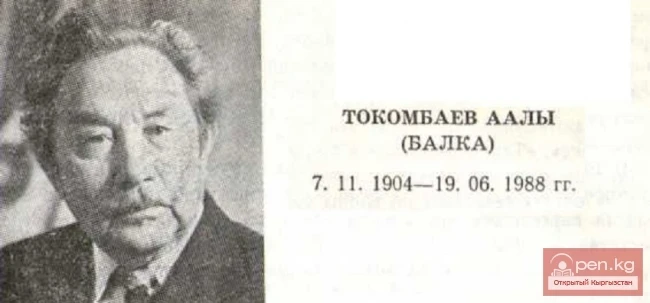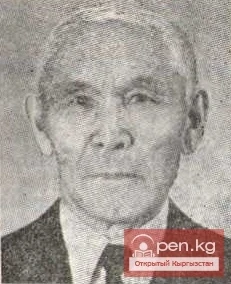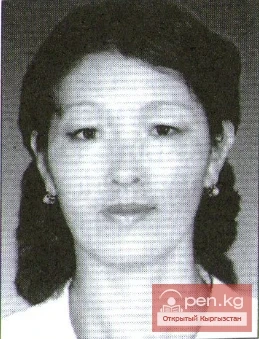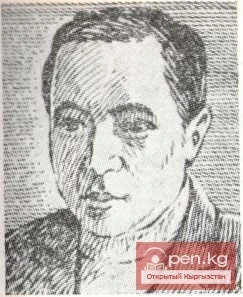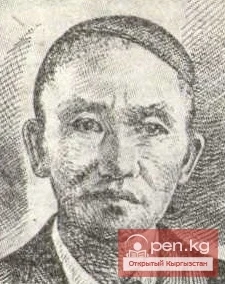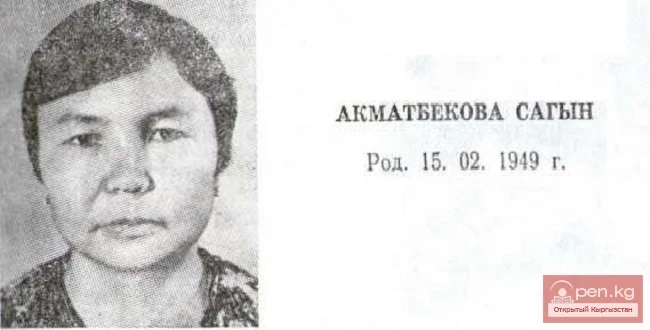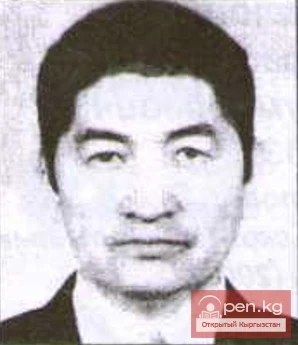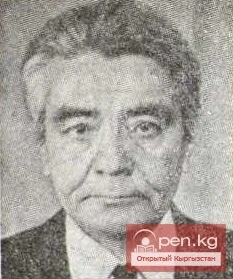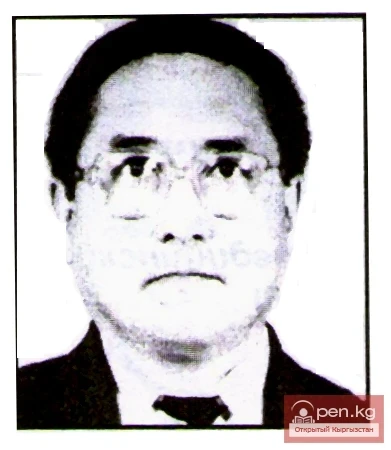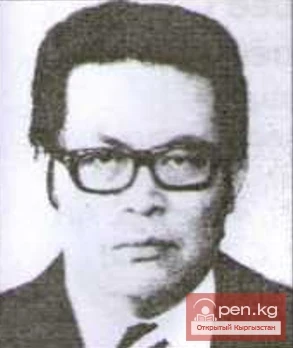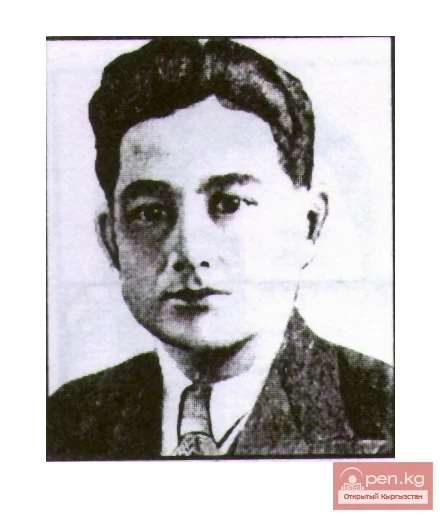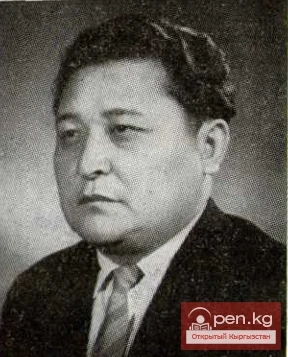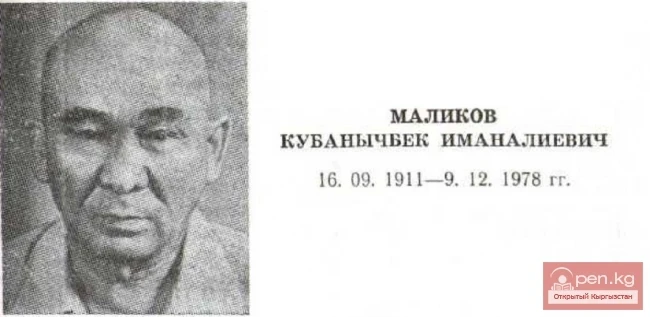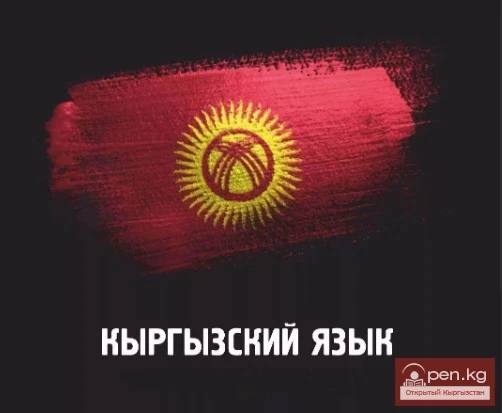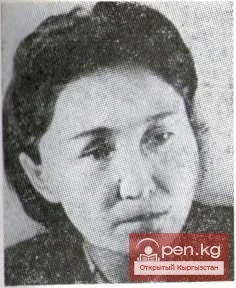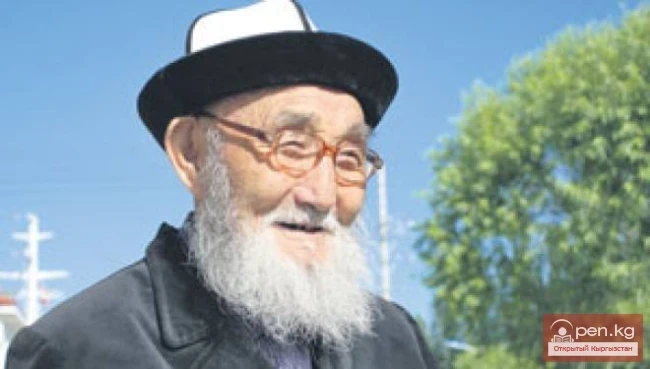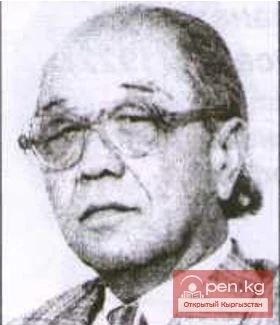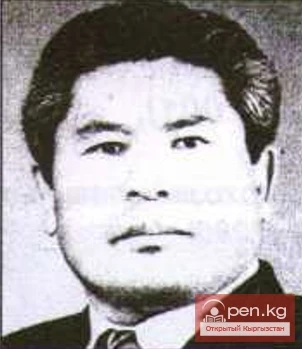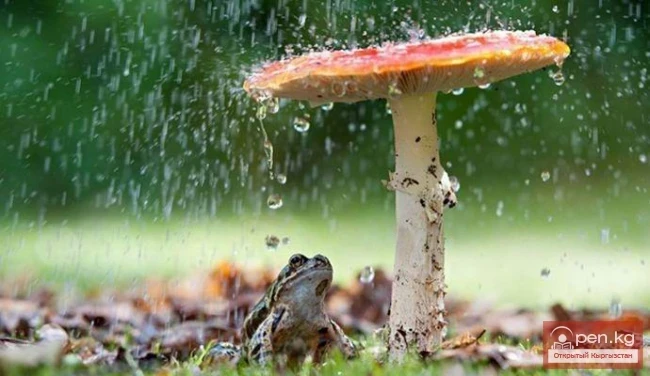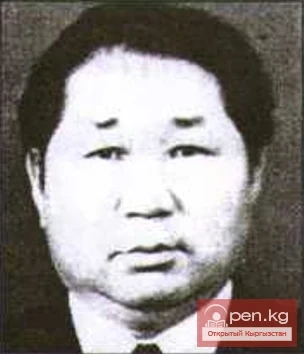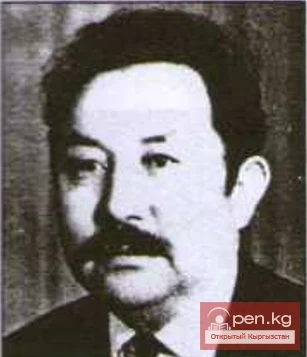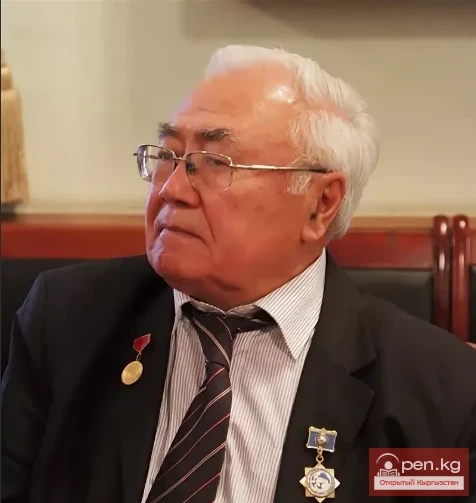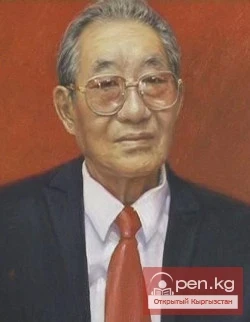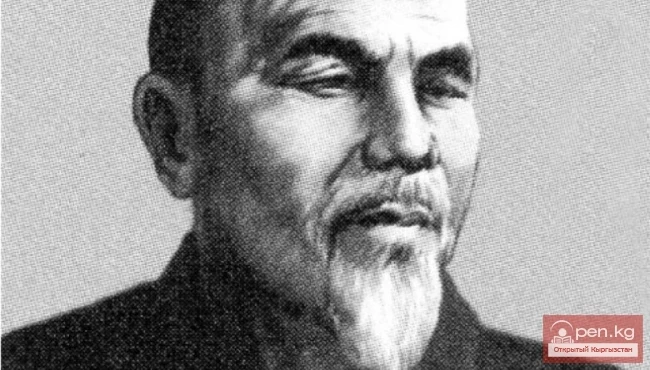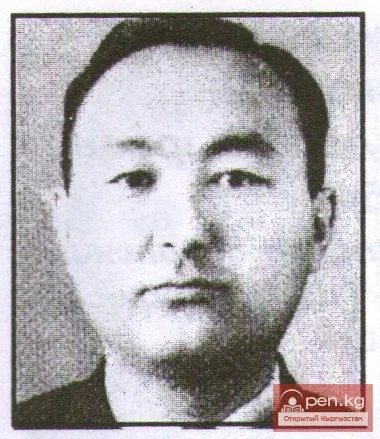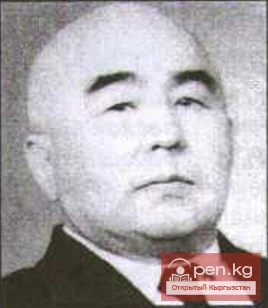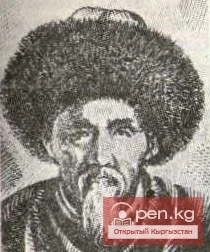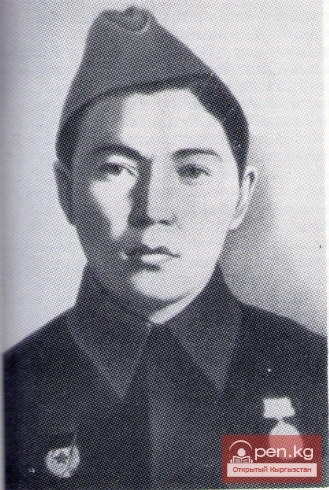
Hero of the Soviet Union Asanaliev Jumash
Jumash Asanaliev was born in 1923 in the village of Otuz-Uul in the Jeti-Oguz district of the Kyrgyz SSR to a peasant family. He was Kyrgyz. A Komsomol member. After finishing secondary school, he worked on a collective farm. He served in the Soviet Army from 1942. Guards private. Machine gunner.
During the Great Patriotic War, he bravely fought in many battles. His first combat baptism was in July 1943 during the battle near Kursk. He was wounded twice but returned to duty each time.
He especially demonstrated courage on June 24, 1944, during the battles for crossing the Western Dvina near Vitebsk at the locality of Labeiki.
On July 22, 1944, he was posthumously awarded the title of Hero of the Soviet Union.
In the village of Otuz-Uul, now in the Ak-Suu district, a bust of Jumash Asanaliev has been installed near the building of the secondary school, and his name is carried by the school and one of the streets in this village.
In the city of Minsk, one of the streets is named after him, and a memorial plaque is installed at house No. 7.
AT THE EDGE OF THE MEADOW FIELD
He lay in a ravine at the very edge of the meadow field. Somewhere beyond a sparse thicket, the morning was dawning, painting the edge of the sky in crimson tones. The dawn crept onto the field, bringing with it the scents of various herbs. Shivering, Jumash raised himself, lay down on his chest in the hollow dug out the night before, and carefully pushed the barrel between the thin branches of a solitary bush. It worked out well: the field was visible across and along, and nothing pressed against his sides. From experience, he knew that in such a comfortable position, he could lie undetected for quite a long time.
Yes, years of hunting experience had saved him more than once. "The ancient science has come in handy," he thought, fondly remembering his father. Asanaly-mergen was renowned for his knowledge of nature, and he had taught his son the same from a young age. When Jumash was a little older, Asanaly took him to the mountains, which had long beckoned and at the same time slightly frightened the boy. He would never forget that day. They walked for a long time through a blue gorge, towards exciting sounds that Jumash imagined were coming from the mouth of a legendary hero, a fierce dragon, locked in a cave. What he saw next was even more astonishing.
Around the bend, a river opened up before them, seemingly falling straight from the sky, miraculously clinging to a huge, smooth rock. An even greater wonder was the living miracle: at the waterfall, they encountered a young roe deer. Jumash could not take his eyes off the yearling. It grazed peacefully on the green meadow, gradually approaching the water, unaware of the humans. "Father," Jumash whispered excitedly, "how does she walk on such thin little legs?"— And without waiting for an answer, he marveled again: "Look at her big eyes, so black, and they sparkle like stars! Father, we won't shoot the roe deer, will we?" — "We won't, we won't," Asanaly gently reassured his son. "How can we destroy such beauty!"
Even later, when his father had entrusted him with his gun, he continued to admire nature and often returned from hunting empty-handed: he could not pull the trigger when he aimed at the silky, restless squirrel or the eternally weeping eye of a fox. But Asanaly-mergen did not scold Jumash; on the contrary, his gaze grew warmer.
"A good person will come out of you," he told his son, "a true hunter. Your hand is strong, and your eye is sharp, but most importantly, you don't kill for no reason. I am calm about you."
Like an exciting book, Jumash studied his native Aala-Too mountains. Whenever he had a free day, he would leave before dawn to the gorges, sitting for hours by the waterfall, waiting for game. He could never get enough of watching the graceful roe deer and proud argali. For hours he observed how industrious ants built their homes and how tireless bees buzzed around their territories. And in the evening by the campfire, holding his breath, he listened to his father's leisurely stories about hunting tales, about Kodjozhash.
...The world trembled when the fire of the Great Patriotic War swept in from the west. The nationwide grief echoed painfully in the heart of the young hunter. It was incomprehensible to him that someone could raise a hand against the life and freedom of the Motherland.
Anxiety settled in the village; every day in one house or another, women sang the farewell song "Kosh, Ala-Too" — "farewell, Ala-Too, your son is going to the front." Jumash was only seventeen, and the military enlistment office rejected him — he was too young. So he wrote an application to the school Komsomol organization, and soon he was accepted as a member of the Komsomol. He dedicated his free time from studies and household chores to shooting practice. "Only true mergens, with strong nerves and a keen eye, can repel the treacherous enemy," explained Asanaly-aga. And Jumash learned to hit birds in flight with a bullet.
September 1942. Finally, it was Jumash's turn. As he was being sent off, his father handed him a hunting dagger:
— I would also go, but I have grown old, they won't take me,— lamented Asanaly. — Shoot the fascists, son, don't spare those wolves.
Never forget how many people have died at their hands. I know that if you have to stay alone, you will fight to the end, you won't surrender, you won't disgrace our family. Come back victorious.
Jumash could not forget the touching farewell with his mother. From Ak-Suu to Przhevalsk, his mother saw him off.
"Take care of yourself, son, be worthy of your father," she advised him without a tear. Jumash understood how much her composure cost her.
— I will return, mom. I will definitely return. Victorious!
Jumash had never been so far from home before. Soon they were put on a train, then traveled by steamboat, and again by train. Before the astonished eyes of the young man, the vast expanses of Russia unfolded.
"No," he thought, looking at these boundless distances, remembering his native mountains, "such a great country can never be defeated by any Hitler, even if he had seven heads like that dragon."
The young reinforcements were not immediately sent to the front. Intensive training began. Natural agility, endurance, and the ability to shoot accurately helped Jumash successfully master the basics of his new job; he became a machine gunner and received the rank of private.
The July morning of 1943 became a day of combat baptism for Asanaliev. In his first battle, Jumash distinguished himself but was wounded. He chose a comfortable, concealed position on the terrain and fired short, accurate bursts when a random shell hit the machine gun crew. He did not inform his parents about the injury: he did not want to unnecessarily worry his father and mother, and pride did not allow it. From the hospital — back to the front.
Now, lying in the ravine, equipment under the trench, he mentally reviewed the bloody battles he had participated in. It was hard to believe he had survived, with so many dear comrades fallen. Could he return home without avenging them, without finishing off the enemy?! In March 1944, their crew was again hit by enemy artillery.
Severe injuries to his legs, arms, and a broken collarbone.
When Jumash began to walk a little, the chief doctor of the hospital invited him in.
— We advise you to continue your recovery at home.
— Thank you, but when the fate of the Motherland is at stake, there is little choice: death or victory,— replied Jumash. — I have no right to return to the village while my comrades' blood is being shed here.
The battle for the Belarusian village of Labeiki, located on the banks of the Western Dvina, promised to be fierce. The fascists, retreating on all fronts, clung to every meter of land and often counterattacked.
From behind a little forest, a fiery ball slowly rolled out, heralding a hot July day. A lark fluttered into the sky, scattering intricate melodies. Nothing foretold war. And suddenly the song of the lark was interrupted by the explosion of a shell. It landed ahead, about twenty steps away. "Well, here we go," Asanaliev frowned and slid down to the bottom of the ravine.
The shelling did not last long.
Jumash raised his head and looked around. One by one, the machine gunners stood up; fortunately, no one was hurt in the artillery barrage. The fighters took their positions. And across the meadow, the fascists were already running. The commander of the machine gunners, Guards Sergeant Makeev, commanded: "Fire!" Accurate bursts forced the Germans to take cover. Immediately, the mortar shelling resumed. This time, the fascist spotters were more accurate, and the shells landed along the ravine. One hit the command crew, and Jumash rushed to the bleeding Makeev, while a direct hit scattered the fighters of his crew. Jumash crawled to Makeev.
— Comrade Sergeant, can you hear me? — whispered Asanaliev. Makeev did not respond. Jumash sharply felt that the commander would never answer him again, would not encourage him, would not smile his broad smile.
A deep pain pierced the soldier's heart. Jumash took one last look at Makeev and rushed to the machine gun.
The fascists were advancing across the field.
— Well, you bastards — get it for Guards Sergeant Makeev, for my comrades!
A long burst of machine gun fire cut down about a dozen Germans. The line lay down, but the fascists did not abandon the thought of capturing the battalion's forward position. In small leaps, they moved again toward the machine gunner's position. Asanaliev fired short bursts. The ammunition was running low.
The enemy, pinned down by accurate fire, did not dare to attack. But then a German officer, with a pistol in hand, ran from one fascist to another, ordering them to stand up. The officer was clearly visible, and Jumash could have easily taken him out, but he did not rush. He waited. The German finally managed to rally about twenty soldiers. The gray-green uniforms clustered around their commander. Asanaliev pressed the trigger, and a straight line of fire pierced through that hated mass.
Another attack was repelled.
But the fascists rose again. They managed to retake the positions left the day before at the edge of the forest, from where they had been driven in the evening by the battalion in which Asanaliev served.
The Germans could not get past the position occupied by Jumash. He fought surrounded. The ammunition in the machine gun belts ran out, and he took an automatic rifle. He let the fascists get very close and mowed them down with his fire.
He no longer remembered how long this terrible battle lasted. Exhausted to the limit, wounded several times, he fought until the last bullet.
— Russian, surrender! — the fascists shouted. Apparently, they intended to take the brave fighter alive.
— Russians do not surrender,— Jumash shouted back, laying grenades on the ledge of the trench — You will never walk on our land again! This edge of the field is your last line.
...On a sunny June day, strolling through the streets of Minsk, I visited the republican historical museum. I knew that personal documents and belongings of Jumash Asanaliev had been transferred here. I did not have to search for the hero's corner.
In the silence of the vast hall, the excited voice of a young female guide, standing by one of the stands surrounded by schoolchildren, rang out clearly.
— Guys, here is gathered the little that remains to us in memory of Guards Private Komsomol member Jumash Asanaliev. This man, surrounded by fascists, all wounded, without a single bullet, did not surrender and did not let the enemies through. Repeating the feat of many, Asanaliev, when the Germans approached closely, detonated a grenade in his hands...
The guide's voice broke off. I stood for a long time at the stand of my fellow countryman, taking notes in my notebook, while the kids did not leave. Quietly, they carefully examined Jumash's simple belongings, peering at the tiny photograph on his shrapnel-riddled Komsomol card.
And I thought: actually, only a few years separate these kids from my peers, so would they, representatives of the current generation, be able to act in a critical moment as Jumash did?
They could. Because we love our land, our dear free Motherland, boundlessly — that is where our strength comes from. And it is no coincidence that the great Country of Soviets is called the homeland of heroes.
A. OMURKANOV
